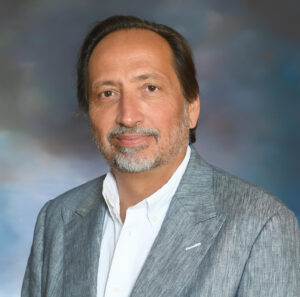The upcoming 2024 Electric Vehicle Summit, announced by the Virgin Islands Energy Office under the visionary leadership of Director Kyle Fleming, is a landmark event for our territory. Scheduled to take place on both the University of the Virgin Islands campuses in St. Thomas and St. Croix, this summit represents a significant step forward in the Bryan/Roach Administration’s unwavering commitment to enhancing energy resilience, reducing carbon emissions, and promoting sustainable transportation. As we look forward to the benefits of electric vehicles (EVs), it is crucial to also address the full lifecycle of these vehicles to ensure a truly sustainable future.

The Bryan/Roach Administration has made commendable strides in integrating EVs into the government fleet and incentivizing private adoption through programs like Equitable E-Mobility (EE-M). These initiatives reflect a forward-thinking approach to reducing our dependence on fossil fuels, ultimately yielding greater energy security and significant savings in power generation costs for all residents. However, as we embrace this green revolution, we must also consider the end-of-life management of EV batteries to maintain our environmental integrity.
Electric vehicle batteries, primarily lithium-ion, contain hazardous materials that require specialized recycling processes. Currently, the USVI lacks the necessary infrastructure to handle the proper disposal of these batteries, posing a significant environmental challenge. Without appropriate recycling options, old batteries may end up in landfills, leading to soil and water contamination from hazardous chemicals. The environmental benefits of EVs are thus undermined by the potential pollution caused by improper battery disposal. The Virgin Islands Waste Management Authority does not currently have a program in place to dispose of EV batteries.
Furthermore, shipping companies classify old electric vehicles and their batteries as hazardous materials, and will not ship them off-island. You cannot even take your EV with you if relocate to the mainland. This logistical barrier leaves EV owners with fewer options for responsibly disposing of their vehicles once they are no longer functional. Addressing this issue is essential to the long-term success of our sustainable transportation goals.
Hopefully VIEO and summit organizers are poised to lead the way in addressing this critical issue. While the summit will feature discussions on EV infrastructure, policy frameworks, and consumer experiences, it is imperative that the conversation also includes strategies for developing a comprehensive recycling program for EV batteries. This initiative could involve collaboration with off-island recycling facilities, establishing local recycling centers, or partnering with private companies to create a sustainable solution for battery disposal.
Policymakers should prioritize the creation of regulations that mandate proper end-of-life management for EV batteries. Incentives for businesses to invest in recycling infrastructure and public awareness campaigns about the importance of responsible disposal could also play a crucial role in addressing this issue.
The Bryan/Roach Administration’s efforts in promoting electric vehicles are well-founded, given their potential to significantly reduce carbon emissions and promote energy independence. However, the current lack of battery disposal solutions presents a challenge that must be tackled to ensure the long-term environmental benefits of EVs.
As residents of the Virgin Islands, we have a responsibility to consider the full lifecycle of the products we embrace. The transition to electric vehicles must be accompanied by robust systems that support their entire lifespan, from production to disposal. By addressing the hidden environmental costs of electric vehicles, we can pave the way for a genuinely sustainable future that honors our commitment to the environment and the well-being of future generations.
— Enrique Rodriguez is a St. Thomas businessman and owner of Rodriguez Auto Parts.





